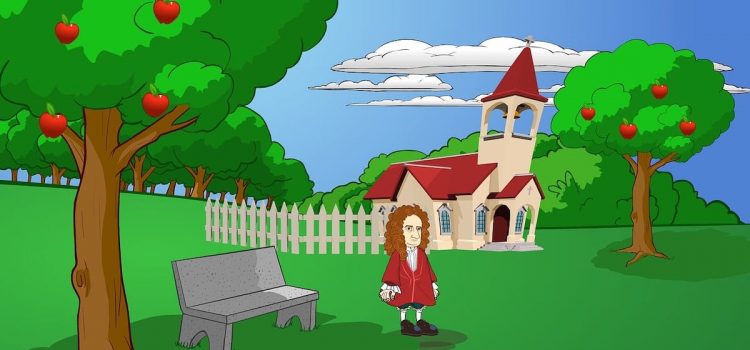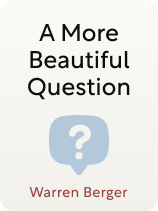

This article is an excerpt from the Shortform book guide to "A More Beautiful Question" by Warren Berger. Shortform has the world's best summaries and analyses of books you should be reading.
Like this article? Sign up for a free trial here.
What does the founder of eBay have in common with Isaac Newton? When are questions even more powerful than answers?
Author and journalist Warren Berger says that questions are the basis of both learning and creativity. He contends that the ability to ask important questions can change our lives. It can even change the world.
Keep reading to learn about the power of questions.
The Power of Questions
A quick look at a couple of world-changing discoveries illustrates the power of questions. When Sir Isaac Newton asked why an apple had fallen to the ground, searching for the answer led him to develop the theory of gravity that we still use today. When eBay founder Pierre Omidyar asked how he could use the internet to create a worldwide marketplace, he created one of the most successful companies to emerge from the 1990s dot-com bubble.
Berger explains that asking questions is the basis of learning. If your question has a concrete answer—whether it’s as simple as “What’s one plus one?” or as complex as “How does nuclear fission work?”—then you’ll learn something new once you find that answer.
(Shortform note: In addition to helping you learn concrete information, an unexpected benefit of asking questions is boosting your emotional intelligence—your capacity to understand your and others’ emotions. Some experts say that asking questions therefore creates a process of constant self-improvement: By asking questions, you increase your emotional intelligence, which allows you to ask better questions, and so on.)
However, Berger points out that not all questions have straightforward answers. Searching for answers to those more nebulous questions is the basis of creativity. If your question doesn’t have a concrete answer (like, “How can I express my feelings through art?”) or the answer hasn’t been fully discovered yet (such as, “What is dark matter?”) that same curiosity might drive you to create a new painting or make a new scientific breakthrough.
(Shortform note: Many people think that creativity, breakthrough discoveries, and inventions must be the result of remarkable intelligence—hence the common expression “creative genius” However, some psychologists argue that you don’t have to be a genius to be creative. They explain that intelligence only describes how quickly and how much you learn, but creativity isn’t about how much you know; it’s the result of how you use your knowledge. At least one study suggests that, in many cases, personality has a greater impact on creativity than intelligence does. The most creative people are those who actively and constantly push themselves to come up with new ideas, rather than the people with the highest IQs.)
In fact, Berger says that the questions we ask are often more important than the answers we find. In the modern world, anyone with internet access can find factual answers to just about any question. However, mere facts are useless by themselves; you need to ask the right follow-up questions to find out how to use those facts to your advantage.
For example, suppose you’re a CEO and you want to find out how a competitor is doing. You could get an answer in moments simply by looking up your rival company’s stock price. The more difficult—and more important—question is why the price is what it is. If your rival’s stock prices have suddenly jumped or fallen, what did the company do recently to cause that change? What could you do to copy its successes or avoid its mistakes?
(Shortform note: It’s true that you can find information about nearly any topic on the internet. However, a lot of that information is wrong and could lead you astray no matter what follow-up questions you ask while trying to use it to your advantage. Therefore, when you think you’ve found the answer to a question, make sure to also ask, “How do I know I can trust this source?” For example, is the source considered to be reliable and relatively unbiased? Is the website updated regularly to keep up with new information? Where did the information come from; an expert on the topic, or just someone who has a blog or a YouTube channel? Do other sources confirm the information or refute it?)

———End of Preview———
Like what you just read? Read the rest of the world's best book summary and analysis of Warren Berger's "A More Beautiful Question" at Shortform.
Here's what you'll find in our full A More Beautiful Question summary:
- The three fundamental questions you should be asking every day
- How to develop a curious, questioning mindset
- How schools stifle curiosity rather than encouraging it






